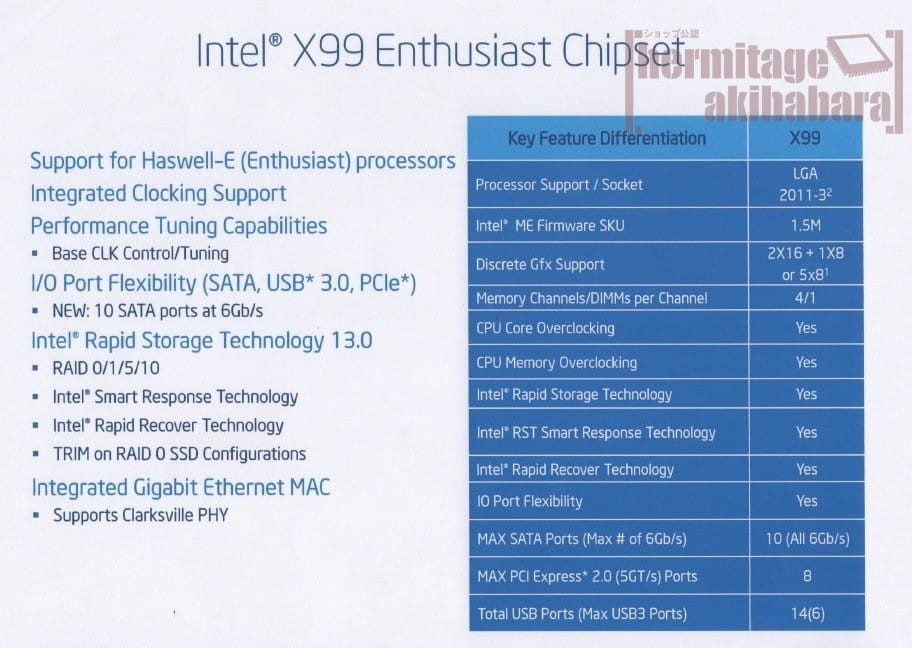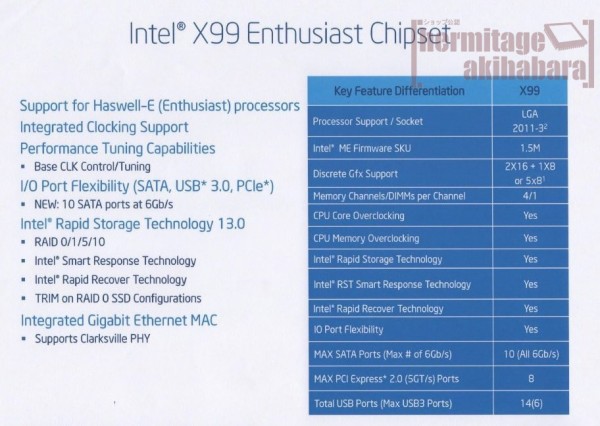It looks like the features for the 9-Series chipsets from Intel have been finalized. Leaked slides from Hermitage Akihabara show us some of the main features for the upcoming Z97 and X99 chipsets from Intel.
The LGA1150 socket will actually get two new chipsets, Z97 Express and H97 Express. The Z97 chipset will be the top-end chipset and will support current Haswell processors and the upcoming Haswell Refresh and Devil’s Canyon processors. Just like Z87 and Z77 this platform will have three PCI-Express 3.0 slots wired to the CPU. This will allow for configurations of x16/NC/NC, x8/x8/NC, and x8/x4/x4. This platform will support overclocking, something that H97 will not. H97 will also not have the same PCI-Express configurations.
Both H97 and Z97 will introduce support for PCI-Express M.2 storage. If you didn’t know M.2 storage offers 66% more bandwidth than SATA 6GB/s and the same bandwidth as SATA-Express. Both of these chipsets will also offer six SATA 6GB/s ports with RAID and ACHI support. Both will have Rapid Storage Technology (RST) and Smart Response Technology (SRT), but Z97 will have Dynamic Storage Accelerator (DST). H97 on the other hand will feature Small Business Advantage (SBA). Both chipsets will have 8-lane PCI-Express Gen 2.0 root complexes to drive on board devices, 14 USB ports of which six are USB 3.0.
The X99 chipset is designed for the upcoming Haswell-E HEDT platfrom and will have the LGA2011-3 socket, which will be incompatible with the current LGA2011 socket. The X99 platform is designed for enthusiasts and multi-GPU setups. It has support for five PCI-Express 3.0 x16 slots wired to the CPU. The configurations are as follows x16/NC/x16/NC/x8, or x16/NC/x8/x8/x8, or even x8/x8/x8/x8/x8. The X99 chipset will have a 10-port SATA 6GB/s controller that has RST and SRT support. Just like H97 and Z97 and X99 chipset will have 8-lane PCI-Express Gen 2.0 root complexes to drive on board devices, 14 USB ports of which six are USB 3.0.
Intel is planning to launch these three chipsets around Q2-Q3 of 2014.
Source: Hermitage Akihabara | News Archive




